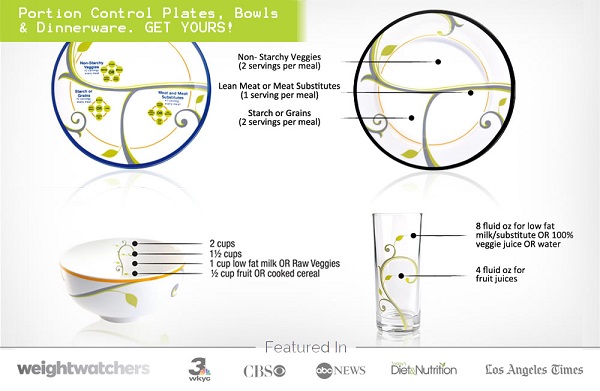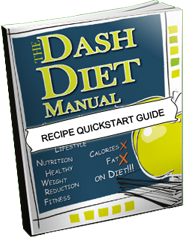Beets—otherwise called beetroots—may be some of the least preferred food in the planet. With a taste that is eerily reminiscent of soil, beets are undeniably a root crop and one that takes getting used to as part of one’s diet.
But while many hated it solely for its palatability—much to staying away from it altogether—beet is a natural source of nutrition and one which has the potential to maintain high blood pressure over time.
For a medical condition that is subtle yet is known to be a cause for the development of certain serious diseases, no one can afford to be a subject of hypertension, especially long-term. Which makes managing it an imperative means towards healthy and prolonged living.
Beets and Blood Pressure Facts
What is it about this root crop that makes it the food to eat when dealing with hypertension?
1. It contains nitrates
Nitrates are a type of salt that is known to induce vasodilation in the blood vessels. Which means that in their ample presence, nitrates help promote blood flow through the body by way of dilated blood vessels.
A study by Kapil, V. et al, 2015 seems to prove how nitrates play essential role in lowering blood pressure among its hypertensive subjects. Said to be an abundant component of natural foods, including beets, nitrates easily make for a natural method of managing blood pressure through dietary foods.
2. It fits the DASH diet
The notion that the food we eat correlates to the presence of hypertension is so strong in the medical field, a derivative diet is formed as aimed at mitigating the occurrence of high blood pressure.
The benefit of the diet comes from its consistency, including fruits, vegetables, lean meat, etc., that altogether helps extenuate blood pressure increases in the body (Hermansen, K., 2000).
Dubbed the Dietary Approaches to Stopping Hypertension or DASH diet, a naturally occurring crop, such as a beet, makes for an essential part of this food selection.
3. Aids in weight loss
There is a relationship between weight and blood pressure. As a general rule of thumb, the more a person weighs beyond the normal range, the higher the chances that such person will suffer hypertension.
That also means that people who are overweight or obese are many times as likely to be hypertensive as people who are within normal weight.
Fortunately, beet is a food that can aid in weight loss, thanks primarily to its low calories. According to Nutrition Data, a ½-cup serving of sliced beets only contains 37.4 calories.
4. It’s low in sodium
Sodium—typically from salt—is a known factor that negatively affects our body’s blood pressure. It is for this same reason why hypertensive individuals are being fed a low-salt diet
At only 64.5 mg per half-cup serving of sliced beets, as per Nutrition Data, this root crop contains very little sodium to counter its benefits towards vasodilation.
In moderation, beets makes for an ideal maintenance snack for people who are hypertensive.
5. Holds water for hydration
Our body consists mostly of water that necessitates us to drink on a daily basis to maintain proper hydration. One of the known effects of chronic dehydration is increased blood pressure that arises from the body releasing vasopressin that constricts blood vessels.
Beets, while not sufficient to replace drinking water, has good amount of hydrating water in it (119 g per every half cup serving of beets, as per Nutrition Data) which significantly mitigates the likelihood of dehydration that causes hypertension.
6. It has fiber
Veggies are a natural source of fiber, which makes incorporating them as part of the daily diet essential for healthy living. However, fiber is more than just an aid to digestion; it also has a cleansing property to it as well that is capable of removing a substantial amount of cholesterol lingering in the blood vessels (Brown, L. et al, 1999).
Knowing the interrelationship between cholesterol level and high blood pressure (a positive correlation), anyone who suffers from hypertension would do their best to add more fiber into their diet.
Beets is a rich natural source of fiber which provides 15% of the body’s needed dietary values per every half cup serving, according to Nutrition Data.
7. in beets promote physical activity
Living an active lifestyle is a common recommendation for people who suffer from high blood pressure due to physical stimulation’s ability to keep the body’s pressure reading stable.
In a study conducted by Husmann, F. et al, 2019, it was found out that healthy supplementation of nitrates—which is something abundant in beets—help the participants perform more physical actions due to reduced muscle fatigue that improves exercise tolerance.
Therefore, people who regularly consume beets have more tolerability towards physical movements that are critical in maintaining an active lifestyle.
8. Has potential as a mood enhancer
The quality of our moods has a way of inducing stress to our bodies, which, in turn, causes the body to be in a state of arousal. Being aroused is symptomatic of an increased blood pressure and is something, which hypertensive individuals ought not to promote in their lives.
Using an animal model, Sulakhiya, K. et al, 2016 has found that an extract derived from beets has anti-anxiolytic and anti-depressant capability when administered to a rodent placed under stress.
The finding creates a precedence for further studies aimed at finding the same effect on humans with the purpose of coming across a viable natural treatment against common mood problems that pose risk to hypertension.
9. Fights inflammation
According to Yu, Z. et al, 2018, there’s a link between inflammation and an increase in the body’s systolic blood pressure.
Beet, bearing a property that fights against inflammation, makes for an ideal counteractive agent.
10. Easy accessibility as food
With literally an abundance in many supermarkets, beets is as staple as other crops, like potatoes. This makes this food easy to source, especially as a means towards managing a healthy blood pressure (Webb, A. et al, 2008).







 We're committed to bringing you the best in health and helping you discover the wonderful world of the DASH diet. If you're looking to control your blood pressure, hypertension, or just looking to get into great health, we're here to help.
We're committed to bringing you the best in health and helping you discover the wonderful world of the DASH diet. If you're looking to control your blood pressure, hypertension, or just looking to get into great health, we're here to help. 



